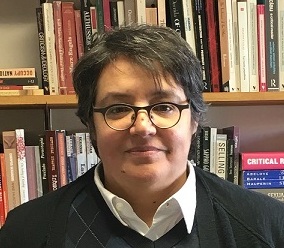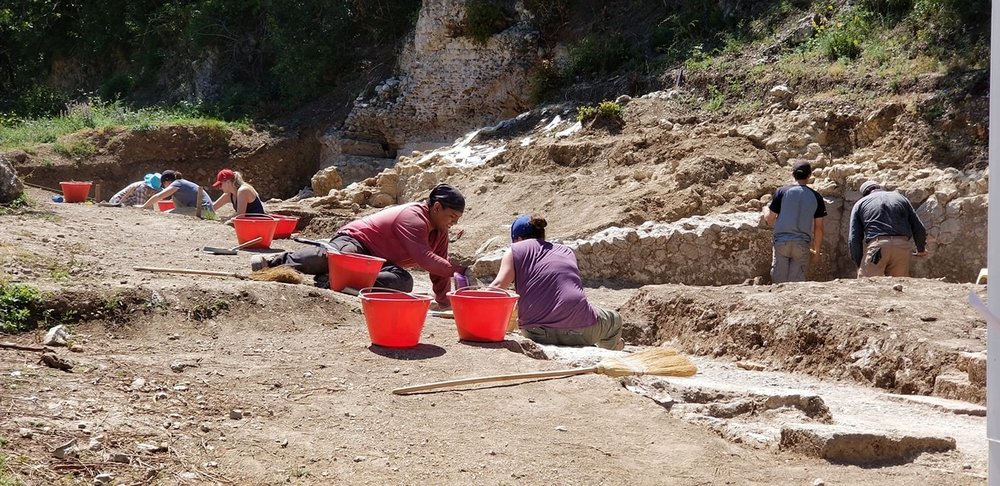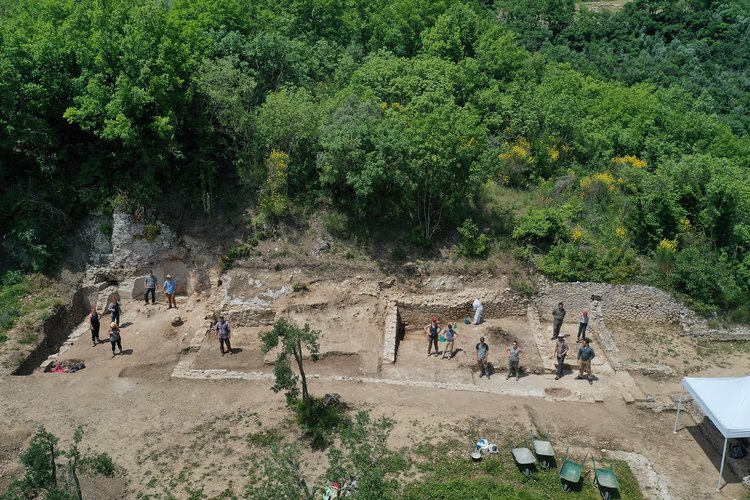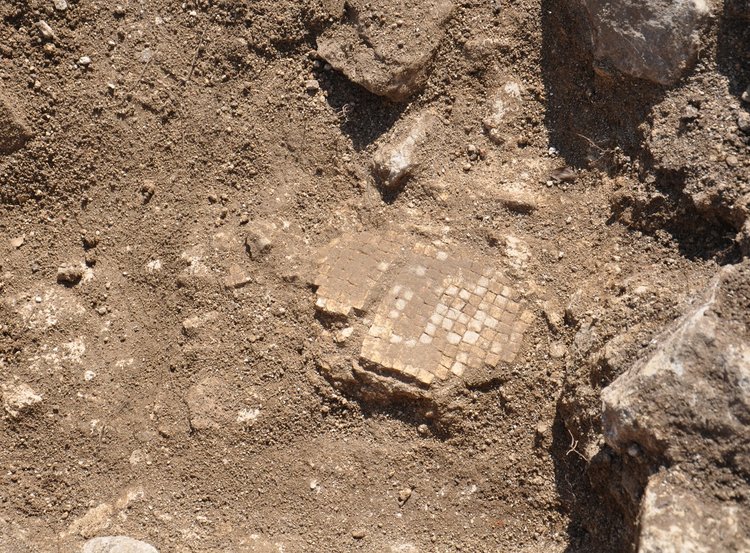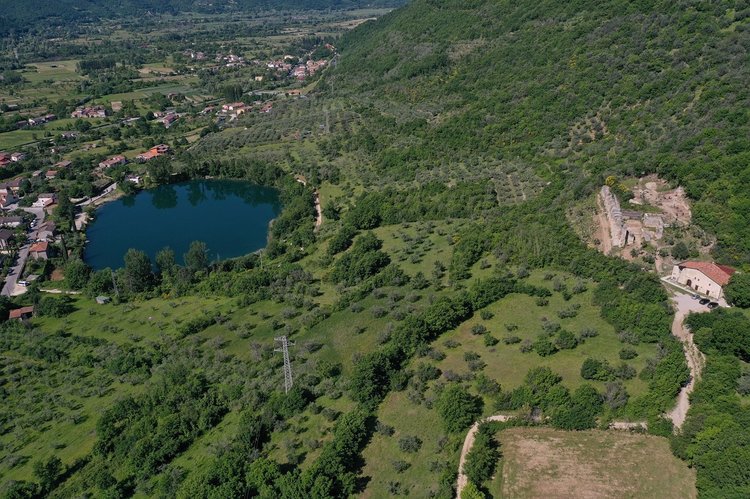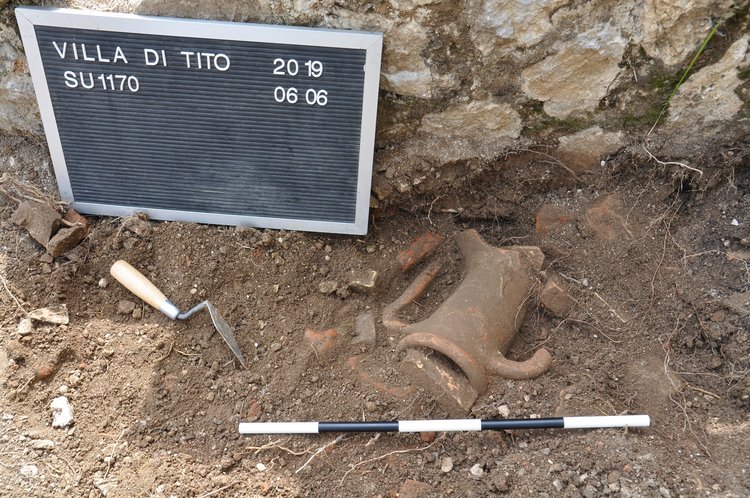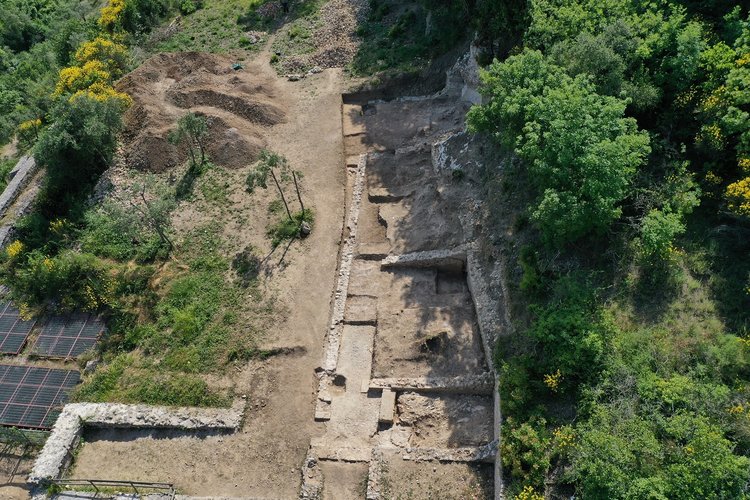When modern technology meets buried remnants from the early Roman Empire, collaborative research has the potential to unearth new chapters of human history never previously analyzed.
That’s the thinking behind The Villa di Tito Project: Reexamining Roman Villas, helmed by Dr. Myles McCallum of Saint Mary’s University. The project received nearly two thirds of SMU’s most recent round of federal research funding, announced July 17 by the Social Sciences and Humanities Research Council (SSHRC).
Home to an annual archaeology field school for Saint Mary’s and McMaster University students, the rural Villa site is located amid olive groves on the north slopes of the Velino river valley in central Italy, in the province of Reiti. It’s along the Via Salaria, an ancient road used to transport salt into the interior of Italy, which ran from Rome to the Adriatic. The Villa sits high above a freshwater lake that is also ripe for archaeological study – the Lago di Paterno, once considered the geographical centre of Italy and a sacred site connected to the goddess Vacuna.
Over its five-year lifespan, the SSHRC Insight grant will – among other things – reduce costs for students participating in the field school, and allow McCallum to hire and train several undergrads each year to work as research assistants on the project. Including three this summer, plus a fourth hired with funds from SMU’s Faculty of Graduate Studies and Research.
“The research results were pretty spectacular this summer and will just get better over the next few years,” says McCallum, Chair of the Department of Modern Languages and Classics. The students “did an amazing job, they worked incredibly hard, and learned a bunch of new things like using our database system, flying a drone, doing some detailed photography and photogrammetry, and more.”
The field school also teaches the fundamentals of archaeological excavation, field surveying, drawing, and artifacts analysis. The drone footage will help to create detailed views, maps and 3D models of the area.
“This particular structure is monumental in size. Whoever built it in the 1st century B.C. invested a lot of time and money into it. It was a showpiece in the countryside for them, and probably the local centre of the social and economic network,” says McCallum.
One of the project’s goals is to find evidence to prove the theory that the Villa was originally built by Titus (Tito), a member of the Flavian family and the Second Dynasty of the Roman Empire. More importantly, it aims to reconstruct the lives of the workers – the people who made bricks and wine, grew crops, pressed olives for oil, or engaged in mining, woodworking and metalworking.
“The historical record is highly biased toward the social elites and the aristocracy,” says McCallum. “They wrote the history for themselves and they didn’t tend to write about slaves or poor people. We want to understand the Villa as a community, as opposed to just a monument to one person or family’s wealth and prestige.”
A good portion of the two-storey structure was revealed over the summer. Other notable finds were coins, stamped tiles, ceramic pots and transport amphorae, chunks of mosaic flooring, and incredibly intact brick walls. The Villa went through a series of renovations over the centuries, and was briefly repurposed after apparently being abandoned for a few hundred years. Environmental archaeology will yield more clues about the people: collecting and analyzing soil samples for pollen, seeds, charcoal, food remains and animal bones can indicate whether diets changed over time, pre-Roman conquest to post-conquest.
“We’re beginning to understand this transition, and the role played by these villas and estates in the process of creating a homogeneous imperial culture in Italy,” says McCallum.
The SSHRC Insight grants are designed to promote research collaboration and partnerships. The Villa di Tito project team includes researchers from McMaster, Oxford, the University of Rome, the University of Nevada and Texas A&M. McCallum has invited Saint Mary’s colleagues in Geography and Chemistry to get involved, for everything from carbon 14 dating and chemical analysis to geomorphology and ground-penetrating radar.
Recruitment is underway for next summer’s field course, and students in all disciplines are welcome. McCallum admits it’s not the most glamourous work: “You’re outside all day for eight to 10 hours. It can get hot, it can rain, and there are bugs.” Even so, most students agree it’s an unforgettable learning experience.
Follow the project on Facebook via the Villa of Titus Archaeological Research Project and the Saint Mary’s Department of Modern Languages and Classics.


